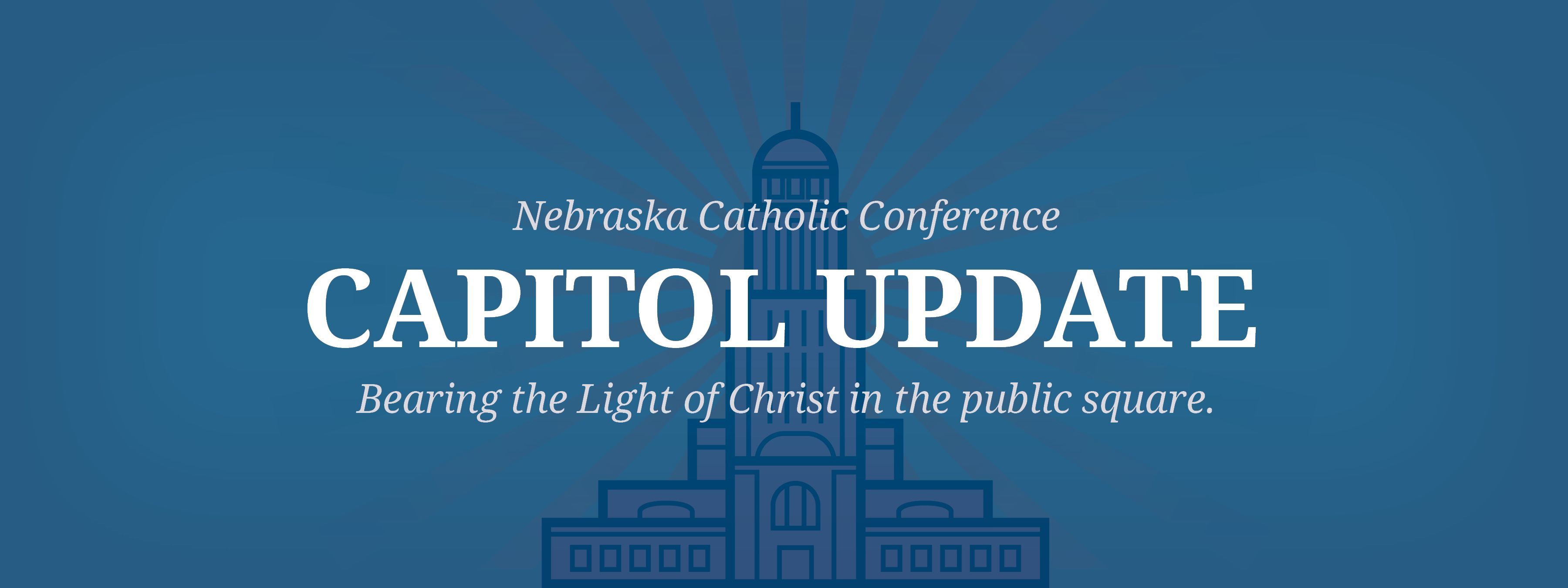In the Catholic liturgical calendar, June 24 is the day we usually celebrate the birth of St. John the Baptist, the great forerunner of Christ who leapt for joy in his mother’s womb upon hearing the voice of Mary—John’s first encounter with the presence of the preborn Jesus.
This June 24 was a little different than usual. The Solemnity of the Sacred Heart of Jesus takes place each year on the Friday following the second Sunday after Pentecost. This year, that happened to be June 24. On this day we devote ourselves more fervently to Jesus in His Sacred Heart, pierced for our sins on the Cross and burning with an all-consuming love for every human person—the high and powerful of this world as well as the very least of us.
It was no coincidence that Roe v. Wade was overturned on the day we celebrated the outpouring of the love of the Sacred Heart of Jesus, and on the anniversary of the day every year that we recall the birth of St. John the Baptist, whose witness for Christ began while both were still in the wombs of their mothers.
Dobbs v. Jackson Women’s Health Organization was a long time coming—49 years after Roe v. Wade, the U.S. Supreme Court finally ruled that the U.S. Constitution does not, and never has, recognized a right to kill preborn children. The Court held that Roe and its 1992 successor case, Planned Parenthood v. Casey, were “egregiously wrong from the start,” and that neither the constitutional text nor any “deeply rooted history and tradition” in our nation recognize a “right to abortion.” The result is that the authority to regulate or prohibit abortion is now returned to each individual state.
As many readers of the Register know, Nebraska law allows abortions up to 20 weeks. We now have the authority and the responsibility to re-enact protections for preborn children in our state from the moment of conception.
Seventeen states, including three bordering Nebraska—Missouri, South Dakota, and Wyoming—already do so. Those states successfully passed protections that became effective upon the overruling of Roe—something we tried and failed to accomplish in our Legislature last spring. We have work to do, and in some respects, because the laws we pass now will have real and immediate impact rather than being contingent on Roe being overruled “someday,” our work is harder. We are determined to prevail.
The question on everyone’s mind now is: when? Will the Governor call a special session before the regular 2023 session begins in January?
Everything depends on whether we have 33 votes to pass a law that would provide substantially greater protection for preborn persons than we have right now. Whether a special session is called and succeeds depends on the work of many people, including at the Catholic Conference, whose goal is to find “yes” votes where they did not exist before. Failing that, we will see everyone back in January—and what we can accomplish then depends on the result of several elections in November.
While that work continues, it is also important for us to consider that our cultural mission field must be broader than that. The abortion industry, which profits off the misery and death of others, is only one side of the equation—on the other side are the cultural and social conditions that lead people to believe abortion is the best or only solution to pregnancies that occur under difficult circumstances.
To that end, it is of course imperative that we step up our financial support of the 20+ pregnancy help organizations and many other charities that serve the people of our state. We should also strive that our parishes are what Pope Francis tells us they should be—“islands of mercy in a sea of indifference.”
There is still more we can do. Culture and policy work together—we must sow good seed in both fields. State and national organizations are exploring policy that aims to provide greater and more predictable options and support to families with children without creating financial dependency on the state. This is important work, and at the same time we are working for an end to abortion in Nebraska, we are studying how our laws might support, rather than undermine, a healthy marriage and family culture—the bedrock of a strong society and nation.
Praise God for such a beautiful gift on the Solemnity of the Sacred Heart. Think about what you can do as an individual and a family to advance the culture of life. And please pray for us and your elected officials as we navigate the way that the Lord has opened for us.

